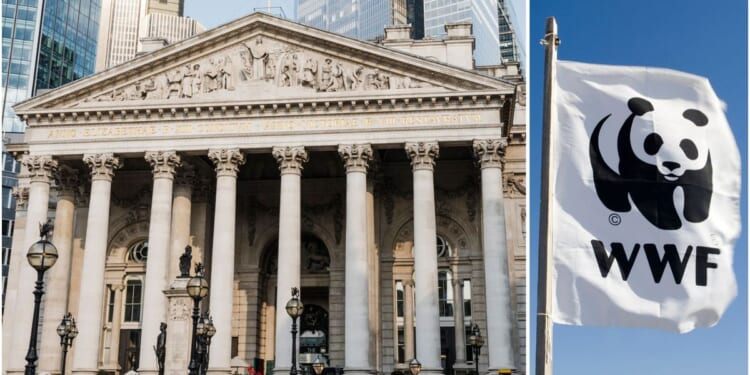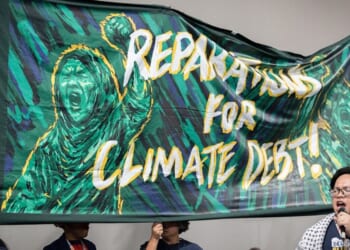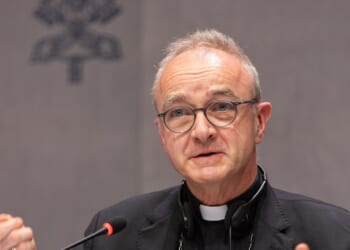Wildlife conservation organisation WWF has warned that the Bank of England must take tougher action to address environmental threats that it says are now directly shaping inflation and financial stability in Britain.
The charity on Monday published a report calling for the central bank to overhaul how it responds to climate change and nature loss, arguing these issues pose serious risks to price stability, economic growth and the resilience of the financial system.
WWF said the Bank has slipped behind global counterparts in preparing for the financial impact of environmental breakdown.
The report suggests the institution could play a more active role in supporting Britain’s transition to a carbon-neutral economy that protects natural ecosystems.
According to the charity, climate change and biodiversity loss threaten key drivers of economic stability, from food supply chains and insurance markets to the wider cost of living.
It argues that the Bank must integrate these risks more fully into both its inflation-targeting approach and its supervision of the financial sector.
The report outlines several recommendations for the Bank to strengthen its response.
These include building stronger technical expertise to assess how environmental factors could undermine economic performance and financial stability.
WWF said the Bank should improve its analysis of how climate damage and nature loss affect Britain’s economy, and share this information widely with policymakers, elected representatives and the public.

WWF has urged the Bank of England to act more decisively on environmental threats, warning they now directly influence inflation and financial stability
|
GETTY
The charity believes monetary policy decisions should support a smooth and orderly economic transition, drawing on lessons from leading central banks overseas while developing domestic solutions tailored to Britain’s economy.
WWF also recommends changes to the Bank’s market operations to help accelerate the shift to a low-carbon economy.
It calls for closer alignment between the Bank’s policies and Government industrial planning, arguing this would strengthen the country’s resilience to climate-driven shocks.
Karen Ellis, WWF’s chief economist, criticised current efforts by the Bank.
“There is so much more they could and should be doing.”
 Inflation had been projected to hit four per cent in September | CHAT GPT
Inflation had been projected to hit four per cent in September | CHAT GPT She noted the wide-ranging economic consequences of climate change, including rising food prices and increasing insurance challenges for households in flood-prone areas.
“As one of the most powerful bodies tasked with regulating this sector, the Bank of England’s actions matter for climate and nature, and frankly the Bank of England and their well-resourced team must do more,” Ms Ellis said.
Her remarks reflect the organisation’s belief that the Bank has both the tools and responsibility to act more robustly to manage environmental threats that are now affecting economic conditions.
Pressure on the Bank over climate-related risks has grown in recent years.
In March 2024, more than fifty economists and advocacy groups wrote to Governor Andrew Bailey, warning that the institution was falling behind other major central banks.
That intervention followed a decision by the Bank to reduce resources dedicated to climate-related work.
Mr Bailey said the changes reflected shifts in Government priorities for Britain’s financial services sector.
However, campaigners and some economists said the move risked weakening safeguards against environmental risks that are increasingly feeding through into inflation and financial markets.
Climate-driven shocks to food production provide one example of the pressures highlighted by WWF.

Markets for coffee and cocoa have experienced sharp increases in recent years due to unpredictable climate patterns in major producing countries
|
GETTYExtreme weather events overseas have disrupted global supply chains, pushing up costs for staples Britain imports heavily.
Agricultural commodities have seen volatile price movements as conditions worsen in key growing regions.
Markets for coffee and cocoa have experienced sharp increases in recent years due to unpredictable climate patterns in major producing countries.
These developments illustrate how climate change can feed directly into inflation, affecting household budgets and business costs across the economy.
Responding to WWF’s report, a Bank of England spokesman said: “While the Government is responsible for climate policy, climate risk threatening our objectives is part of the Bank’s remits, and we work to take action accordingly.”
WWF said the scale and urgency of climate-related threats mean the Bank must deepen its focus, arguing that stronger action now will support long-term economic stability and protect living standards.















